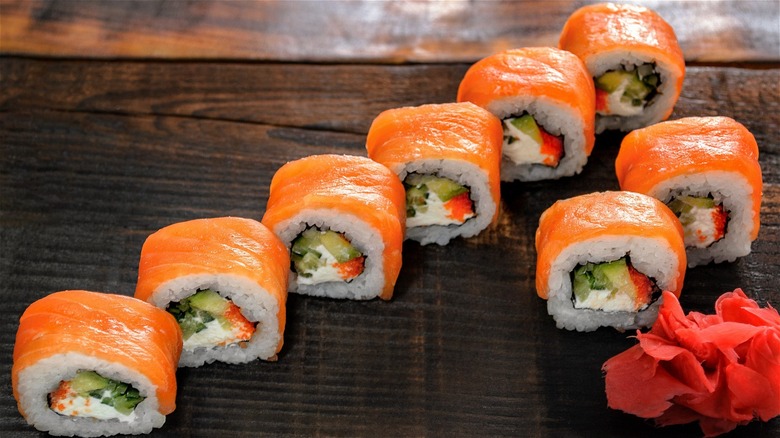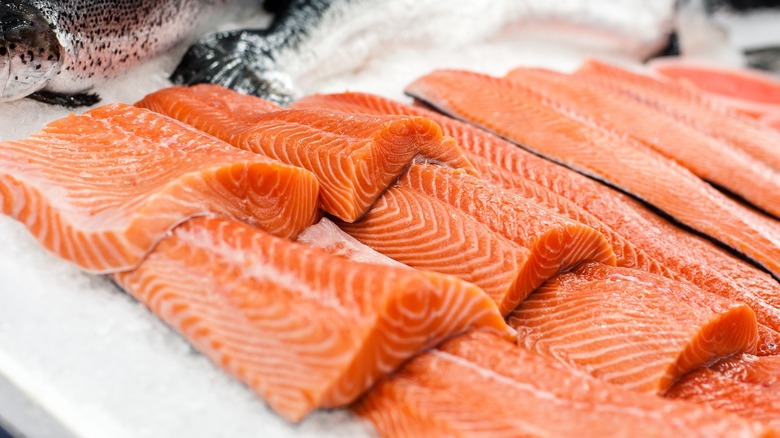How Japan Was Tricked Into Eating Raw Salmon Sushi In The '90s
Fish is unlike any other meat on the market. For the most part, nobody recommends consuming undercooked beef or chicken due to the possibility of food-borne illness. The rules seem to bend monumentally when considering sushi, as it's become a staple in diets all over the globe.
Many believe that sushi got its start in Japan, which is incorrect. Though you're thinking of the right continent, sushi was actually originated in China because it could be preserved without any bacterial growth, per Roka Akor. To prevent it from going bad after long periods, it consisted of fermented rice and salted fish. The most interesting part is that refrigerators weren't used for storage, as sushi was invented long before that option was available.
Eventually, sushi made its way to Japan, namely after the practice of avoiding meat was introduced as Buddhism spread (via PBS). By the 1920s, vendors were selling various types of sushi from carts on the streets of Tokyo. Today, when you think of Japan, sushi immediately crosses your mind, but the locals didn't take to salmon sushi as easily as you might have expected.
Parasites were a concern
When salmon sushi was first introduced, people in Japan had some of the same concerns as others do involving bacteria-laden food. Revealed in a Twitter thread, the Japanese didn't eat the fish due to parasites, something that didn't change until Norway found a way to farm salmon without the health risk. Originally, Japan had no problems farming their own fish until a ban in the 80s. "In the 80s, supplies dwindled due to overfishing and Japan was banned from the fishing zones of other countries. It needed imports," the post read. After that, Norway had excess salmon, and Japan was lacking salmon due to this ban.
Farmed salmon was then pushed on the Japanese, when Norway sold 5,000 tons of the fish to a food firm in the Asian country. "Raw salmon consumption first took off in the conveyor belt restaurants. But eventually, salmon sushi went mainstream," the post read. Basically, it took many years of persuasion for Japan to adopt raw sushi as its own.
National Public Radio confirmed this story, citing the lack of advertising as a setback in salmon introduction. Norway's salmon-selling front man at the time, Bjorn Eirik Olsen, was tasked with spreading the word to the Japanese people. "Bjorn [had to say that] Norwegian salmon's different. Parasites aren't a problem. But he couldn't run an ad that said, don't worry; our salmon is parasite free," Jess Jiang said. Today, sushi lovers must thank Norway for changing the world's mind.

